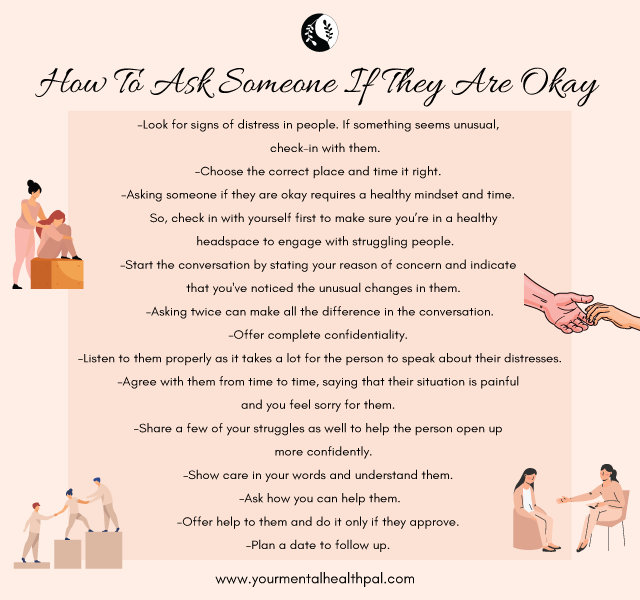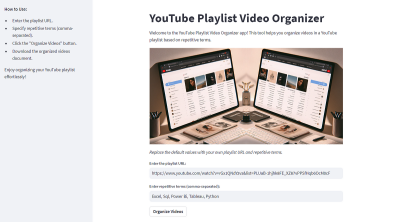Sometimes, it’s hard to tell if someone is genuinely okay or if they are just putting on a brave face. Whether it’s a friend, a colleague, or a family member, you might find yourself wondering how to approach them about their well-being. Asking if someone is okay is a delicate matter; it requires empathy, sensitivity, and timing. In this post, we’ll explore how to recognize the signs that someone might need support and how to ask that important question in a thoughtful way.
Recognizing Signs Someone May Need Support

Before you approach someone with your concern, it helps to understand the subtle signs that might indicate they are struggling. Here are some common indicators to look out for:
- Changes in Behavior: If you notice someone acting differently than usual—whether they’re more withdrawn, irritable, or indifferent—this can be a sign they’re going through something challenging.
- Physical Appearance: Sometimes, stress or emotional turmoil can lead to neglecting one’s appearance. If your friend looks disheveled or unwell, they may need support.
- Losing Interest: If a normally enthusiastic friend suddenly loses interest in hobbies or social gatherings, it might be worth gently probing.
- Emotional Responses: Pay attention to their emotional state—are they easily upset, crying frequently, or showing signs of anxiety? These can all be red flags.
- Social Withdrawal: A tendency to isolate from friends and family can often be a sign that someone is struggling with their mental health.
Recognizing these signs can help you approach someone more effectively. It’s not always easy to address these issues, but being observant and sensitive to changes in their behavior allows you to offer support when they may need it the most.
Choosing the Right Moment

Timing is everything when it comes to checking in on someone’s well-being. You wouldn’t want to ask someone how they're doing while they're in the middle of a hectic workday or during a family gathering. Here are some tips for choosing the right moment:
- Observe Their Body Language: Pay attention to non-verbal cues. If they seem stressed or withdrawn, it could be a signal that they need someone to talk to.
- Private Settings Matter: Find a quiet, private space to have this conversation. This ensures they feel safe to open up without the pressure of an audience.
- Follow Up on Previous Conversations: If they recently mentioned a stressful situation, approach them later when you've both calmed down. It shows you're genuinely interested in how they're coping.
- Consider Their Routine: If your friend is a morning person, try to catch them during breakfast or coffee. If they’re a night owl, maybe reach out later in the evening.
- Gauge Their Mood: Sometimes, you can sense through your interactions whether they’re open to a heart-to-heart chat. Trust your instincts!
Remember, being considerate of when you ask shows that you care. With the right timing, your question can have a much more profound impact.
How to Frame Your Question

How you ask someone if they're doing okay can influence how they respond. Here are some effective strategies to frame your question:
- Be Direct Yet Gentle: A simple “Are you okay?” can work wonders. Just ensure your tone is soft and caring.
- Use Open-Ended Questions: Instead of yes-or-no questions, ask something like, “How have you been feeling lately?” This invites them to share more.
- Show Empathy: You might say, “I’ve noticed you’ve seemed a bit off lately. Is everything alright?” This shows you're aware and concerned.
- Normalize Vulnerability: Remind them that it’s okay not to be okay. You could say, “Hey, we all go through tough times. If you feel like talking, I’m here to listen.”
- Be Patient: Sometimes, they might need time to gather their thoughts. After asking, give them space to respond without rushing them.
By framing your question thoughtfully, you signal that you’re a safe person to talk to, which can make all the difference to someone who’s struggling.
Active Listening Techniques
Active listening is more than just hearing what someone says; it's about truly understanding their feelings and the meaning behind their words. It fosters trust and makes the other person feel valued. Here are some effective techniques to enhance your active listening skills:
- Maintain Eye Contact: Looking someone in the eye while they speak shows that you are engaged and are genuinely interested in what they have to say.
- Use Open Body Language: Position yourself with an open stance and lean slightly forward. This indicates that you are attentive and willing to listen.
- Reflect Back: After the person shares, paraphrase what they said. For example, "What I hear you saying is..." This helps clarify their thoughts and shows you’re paying attention.
- Avoid Interrupting: It can be tempting to jump in with advice or your own experiences, but let them express themselves fully before responding.
- Ask Open-Ended Questions: Encourage deeper conversation with questions like, "How did that make you feel?" instead of yes-or-no questions.
- Confirm Understanding: Use phrases like, "That sounds really tough," to acknowledge their feelings and reassure them that you’re on the same page.
These techniques not only help you grasp what’s being communicated but also create a safe space for the other person to share more openly. Remember, the goal is to show empathy and support.
Following Up
Following up after your initial conversation shows that you genuinely care and reinforces the bond between you and the person you’re checking in on. However, timing and approach are key. Here’s how to effectively follow up:
- Pick the Right Time: Don’t rush to follow up immediately after the initial conversation. Give them space but check in within a few days or a week.
- Make it Personal: A simple text or call can work wonders. You might say, "I was thinking about our chat the other day—how are you feeling now?"
- Be Genuine: Your tone should reflect your sincere desire to know how they are. Avoid sounding scripted or impersonal.
- Offer Support: If appropriate, remind them that you’re willing to help, whether it’s just being there to listen again or offering practical assistance.
- Practice Patience: Understand that they might not want to talk more at that moment. Respect their space and reiterate that you are there for them whenever they are ready.
Following up is crucial in showing that you are invested in their well-being. It not only strengthens your relationship but also reassures them that they're not alone in whatever they're going through. Remember, small gestures of concern can make a significant impact.
The Right Way to Ask If Someone Is Doing Okay
Checking in on someone's well-being is essential, especially during challenging times. However, approaching the topic delicately is crucial to ensure that the individual feels comfortable sharing their feelings. Here are some tips on how to effectively ask someone if they are doing okay:
- Choose the Right Moment: Timing is key. Find a moment when the person seems relaxed and open to conversation.
- Be Genuine: Your tone should convey sincerity. A genuine concern can create a safe space for the other person.
- Use Open-Ended Questions: Instead of asking "Are you okay?", try questions like:
- Listen Actively: If the person opens up, listen without interrupting. Nodding and using affirming phrases can help them feel heard.
- Respect Their Space: If they’re not ready to talk, don’t push. Let them know you’re available whenever they feel comfortable.
| Question | Purpose |
|---|---|
| How have you been feeling lately? | Encourages elaboration. |
| What's been on your mind? | Invites sharing of thoughts. |
| Is there anything you’d like to talk about? | Shows willingness to listen. |
Building a supportive relationship requires patience and understanding. By approaching with care and mindfulness, you can create an environment where individuals feel valued and empowered to share their experiences.
In conclusion, the right way to ask if someone is doing okay involves genuine concern, choosing the right moment, and being prepared to listen actively while respecting their boundaries.
 admin
admin








